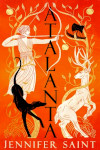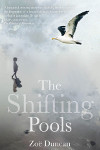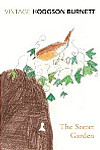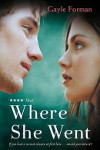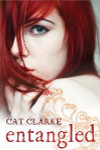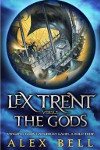Katherine Webb – The Legacy
Posted 15th September 2010
Category: Reviews Genres: 2010s, Historical, Social
Comments Off on Katherine Webb – The Legacy

Every family has their secrets, their problems, but not every family’s secrets are entwined.
Publisher: Orion Books
Pages: 422
ISBN: 978-1-4091-1716-2
First Published: 2010
Date Reviewed: 29th August 2010
Rating: 3.5/5
Beth and Erica have moved to the manor owned by their extended family, to sift through their grandmother’s belongings and ready the house for a potential buyer. But neither of them knew that when they got there they would find their childhood friends right where they left them, and they didn’t know the history of the great-grandparent who had caused their grandmother so much pain. Beth and Erica have not been back since two years after the disappearance of their cousin, and Beth has never been quite the same in the twenty-odd years in between, but now there’s a chance to find out what happened, both to their cousin and to the great-grandmother who so upset her own dynasty.
The Legacy is an incredibly long book. The narrative is split into two parts, past and present, each chapter being one or the other so that they are told back-to-back. At times the stories run parallel so that while Caroline travels in America in the past, Erica is discovering, in the present day, those events that occurred.
Webb has constructed an interesting story but unfortunately, although you can understand the issues the characters have, the people that populate her pages are lacking. They are not bad by any means but because the novel follows a simple pattern to many others, and shares the same basic storyline as so many before it, the characters fall flat of expectations. Caroline is very much a product of her time but it is still frustrating to read about her because you’d hoped she would be different. Some of her decisions are difficult to read about, so while she may have been a worthy candidate for her time she is unworthy of all that is given to her. Erica and Beth, Dinny too, are very average. There is nothing to recommend them to memory. The problem is that they are mostly there to further discovery but they’ve been given an ample amount of the book and so while there is plenty of space for them to develop there is little reason for them to do so. Although there are two secrets involved in the book, one historical one modern, the emphasis is on the historical so their fictional lives have been created for Caroline’s tale.
It is Caroline’s life that’s in the spotlight, and it’s this that is most interesting, but a rival to that interest has to be the location of the modern section of the story. As such this is also a rival to Erica’s narration. The wonderful thing about The Legacy is that the modern part is set at Christmas but often reflects on summer; this makes the book perfect for any weather, any season. It has all the recommendations of a summer read and all the recommendations of a winter one. I was very comfortable reading this novel while the rain poured and the sun shone in equal measure.
The locations picked are so far apart that it spurs the narrative on, so that where the modern characters may lack substance and the historical ones goodness, there is a constant need to read the book. Caroline lived in America before she came to England, in the hot, dry, hardly-cultivated lands of Oklahoma, and while Webb is not adept at character development she excels at location description. It’s all too easy to get lost in the landscape so that when you pull yourself away the heavy rainfall outside your window is a shock.
Lamentably, one of the two secrets is too predictable, in fact I realised the twist by a quarter of the way in. Whether or not this was intended by Webb I cannot decide because in a way it is painfully obvious, but the fact that the book carries on digging through ideas before coming out and telling you the secret itself leads me to think it was meant to stay secret. Because it was so obvious and because so many people will guess it like I did (it is that obvious that I can say that for sure) it puts a bad light over the book. All those pages to work out what the reader already knows; and it’s not like there is an interest to be had in reading about how the characters work it out because it’s not like the story is your average well-researched and forensic-riddled mystery.
Webb has thrown noticeable satirical and observational remarks into the book. She comments on the pushy quality of organisations to get you to join and the oft-acknowledged situation of Britain’s Prince Charles. These bring in some very up to date points of conversation for the reader to ponder on and allow for a sort of participation you wouldn’t generally expect in a novel.
But Webb’s style of writing is baffling. She often closes a sentence of dialogue with a full stop rather than the usual comma and then the “he said” part which makes working out who’s said what or done what very confusing. She also uses peculiar sentence structures that have a similar effect. There’s a good story behind the words but digging through them to get to it is difficult.
The Legacy takes a long time to tell a short story and while it’s a nice pastime there isn’t enough to recommend it to memory. It really is a very average book.
Related Books
L J Smith – The Forbidden Game
Posted 11th September 2010
Category: Reviews Genres: 1990s, Horror, Paranormal
2 Comments

Seven teenagers battle against evil to free their friend from her abominable fate.
Publisher: Simon Pulse (Simon & Schuster)
Pages: 746
Type: Fiction
Age: Young Adult
ISBN: 978-1-84738-738-7
First Published: 1994 (as three separate books); 2010 (as one volume)
Date Reviewed: 8th September 2010
Rating: 4/5
The Forbidden Game is a bind-up of three books that form a trilogy: The Hunter, The Chase, and The Kill. Please note that I will be reviewing all three at once and as such will only be providing a bare basic synopsis.
When Jenny runs out of planning time for her boyfriend Tom’s birthday she rushes around trying to find a board game that would interest her sixteen-year-old friends. Upon finding herself chased she comes across what appears to be a mural of a shop drawn on the front of a store that has shut down. But “appears” is the word, for on closer inspection the painted door handle is an actual handle, the door a real door, and she sneaks inside. It’s a game shop, a creepy place, and the gorgeous but strange teenage owner is selling ancient and niche board games. She takes the one he suggests, discovering she’s powerless to resist. But when the guy says he will see her “at nine” he means it. Jenny and her friends have a paper house to create and a game of nightmares to play, one that will literally imprison them in their dreams. And even if they get through it all, who’s to say that that will be the end?
When I picked up this tome, never having heard of Smith before, I was expecting a darker paranormal than Twilight, and while initially I was disappointed it didn’t last for long. Definitely of importance is that this book was written long before Twilight and thus long before the gushy romance paranormal novels. It’s old school dark fantasy, with real horror. You can try to compare it to recent releases but that’s pretty difficult to do, regardless of the fact that Smith couldn’t possibly have been inspired by the stories of today. You could probably compare it to paranormal series of the 1990’s but since I’ve only read this one I’ll leave that discussion to those in the know.
So I was after a dark book. There were always going to be limits on this because of the age recommendation, but apart from the very first part of the very first game (in other words the first round of The Hunter) there is little to be frightened of in a big dark house, evil Shadow Men or not. The teenagers must each conquer their worst nightmares and they are all pretty standard nightmares, handled in a standard way, which makes them just regular reads. They aren’t given enough time and it’s all over too quickly.
This standard has changed by the final book where the setting is a still-predictable but far more spooky place, one which many people are likely to identify with. The gruesome aspects may, again, be somewhat predictable, but the horror factor is far more apparent, as you might expect for a book called The Kill. The scene where the group first come across old arcade games is difficult to read in a very satisfying way, and Smith goes into details, ones that everyone thinks about but then forgets. She makes it more disturbing than usual.
The enemy of the book, the anti-hero, is a Shadow Man, lesser than a demon but a literal world away from not-too-bad. Julian fell in love with human Jenny when she was five years old, and the feelings of being watched that she’s endured all her life turn out to be warranted when Julian admits he has coveted her ever since he laid eyes on her. He is a typical bad guy, and you know what will happen to him, but Smith has included in his personality some traits that make his part readable.
As to the other characters there are less stereotypes. The heroine isn’t an action hero but she’s no clumsy damsel either, she’s realistic and a good antidote for anyone sick of Bella Swans and Luce Prices. You do have your gutsy females, your feminine females, but you don’t have your heroic gallant boys, and the females don’t stick to their personalities. Everyone changes back and forth, they each have their interests and different appearances but there are no strong reasons to prefer one to another which makes a nice change.
Talking of non-heroic males I think I should probably say, before I invite dispute, that Tom is very protective of Jenny and does do some amazing things but he also sulks a bit, in other words he is your average person and for that realistic.
In order to create a different world Smith makes use of various mythology and mystical conventions, blending them together to good effect. She even puts a dark spin on fairy lore.
There are a few spiritual aspects to the trilogy that Smith employs. One is that a person controls who they are and that no one can tell you to do otherwise. She uses this to demonstrate that although Julian, on the face of it, is much more powerful than the teenagers, a little thought can cause his power to crumble. This strength of thought is used in all three books, especially in The Chase where the teenagers must walk through illusions to escape. Smith refers to those who walk on hot coals to illustrate that we can control a lot of things with our minds. A somewhat disguised theme is believing in yourself, in The Hunter it is all about believing in what you’re trying to achieve.
An interesting quotation, not unrelated:
When you get to a certain extreme, the elements all sound like one another – fire sounds like water sounds like wind.
The biggest topic of the trilogy is, of course, good versus evil. Smith blurs the lines that separate them in ways that seem lost to the paranormal genre at present. Julian really is evil, very evil, but he struggles with feelings of love and devotion, and protection. He says he’ll never change – he’s devilish, why would he? – but he keeps that goodness throughout.
I said I couldn’t make a comparison but that’s not strictly true because there is one obvious comparison to be made. The book Jumanji had been released a decade before, though it is not likely that Smith saw the film version because that was released in 1995. The reference, if true, concerns The Hunter, the bringing alive of a board game. I think that’s something each reader has to make their own mind up on.
Smith’s writing is generally simple. The inclusions of cultural elements are great excuses to open up Wikipedia and do some further reading, and the obvious regards to 1990’s life are good reminders that paranormal existed pre-2000. As someone in their twenties I loved reading a book both written and set in the time when I was growing up. Smith doesn’t have any weird literary tendencies, which is nice, and the only thing I could find worthwhile pointing out in this respect was her metaphor of “dandelion fluff” for someone’s hair, which is rather cute.
Here, in one large book, are three related but separate stories thanks to three different games and settings. The only bad thing about the bind-up is that there is never any true danger in the books and because of this I would recommend any would-be readers not to read them in one long haul like I did. Because it does trundle along in a decided pattern, it can become boring in that easy to put down way, which doesn’t happen during the first book. Yes, that is definitely my advice: read plenty of other books in between.
Before there were loved-up vampires, angels, and ghosts, there was L J Smith, a woman who wasn’t afraid to do her own thing. The Forbidden Game may not be perfect but it is a brilliant alternative to what is being produced now and, dare I say, far more worthwhile.
Will I be reading the rest of her books, even those that deal with vampires and love? Hell yes I will, for I’ve definitely been bitten by the bug.
Related Books
Julie Buxbaum – After You
Posted 8th September 2010
Category: Reviews Genres: 2000s, Domestic
1 Comment

Life can get ahead of you and it can take a shocking event to make you realise how precious things are before you lose them and yourself.
Publisher: Bantam Books (Random House)
Pages: 399
Type: Fiction
Age: Adult
ISBN: 978-0-55381-884-0
First Published: 2009
Date Reviewed: 2nd September 2010
Rating: 2.5/5
When Ellie hears that her best friend Lucy has been killed she immediately flies to the UK to be with Sophie, the daughter left behind. Ellie introduces Sophie to The Secret Garden and together they read the book for therapy. But Ellie makes no plans to go back home and as the days wear on her husband begins to question her reasons for staying. It seems that through Lucy’s death and Ellie’s upheaval the issues that were haunting Ellie, unwittingly, have been dragged to the surface. She now realises where things need to change, but the question is how to go about it?
The idea for the book is simple and although not utterly compelling it’s a good enough reason to read. However I had a major issue with this book that really spoilt it for me so I’d like to discuss that first.
Buxbaum makes her character a commentator of British life and the assumptions made I personally found rather offensive. Had these assumptions and slurs been few it would have been easy to overlook but there were many many references to “Brits” and “Britain” throughout the book and 90% of them dealt with it’s people. The tragedy of Lucy’s death is placed behind a myriad of subtle and not-so-subtle prejudiced remarks. What started as a humorous look at difference turned into a slander match, which is especially odd when you consider that Americans and Brits aren’t so different.
An example, one of the worst, is the statement that British children are not demonstrative of love. I’m sorry, but this is rubbish and I can see no possibility but this being Buxbaum’s own opinion.
Unfortunately it took a lot of digging for me to unearth the goodness from where it had got lost under the remarks.
A well-used topic in the book is another book itself – Ellie and Sophie read their way through Frances Hodgson Burnett’s The Secret Garden, and the story overlaps with their life and with the themes in After You itself. Here I’ll quote from the quotation included from The Secret Garden:
To let a sad thought or a bad one get into your mind is as dangerous as letting a scarlet fever germ get into your body. If you let it stay there after it has got in you may never get over it as long as you live.
The above has been used by Buxbaum to illustrate one of the themes in After You – Ellie’s loss a few years before the book started has been allowed to fester and grow out of control so much so that it impacted her marriage to dire effect. The quotation from The Secret Garden comes right at the time when Ellie is starting to realise exactly how her life has become the sad event it has and when she’s realising that if she’d stopped it things would be different.
The biggest theme of the book is questioning what you have; is it enough, is it good enough for you, do you need more? Buxbaum never talks about “you don’t know what you had until you lose it”, though this could be applied, rather she talks about living contented and not letting difficulties ruin things that aren’t related to them. One of the characters in the book says that they failed the test, and it is then that the concept comes into play – something that should have brought joy brought instead sorrow, but it didn’t stop there, it brought sorrow to a place where it was not untitled to go.
It is evident where Ellie’s problems stem from, and the reader knows this long before she does. In many books this structure is frustrating but here it is warranted. It allows you to sympathize and cheer for Ellie, to really understand how someone can be affected by what she went through, and allows for character growth.
Buxbaum loves her metaphors and hiding themes and ideas within cleverly designed sentences. She doesn’t make it hard to discover what she’s really talking about which, on the face of it that may be considered a bad thing, but in the case of this book and it’s style it’s perfectly fine. The very end sentence of the story is one such example where words relating to a current activity are clearly a metaphor for the bigger picture.
Not unlike Katherine Webb in The Legacy, Buxbaum likes to comment on the human condition and society. (The following quotation has been edited so that spoilers are not included):
“We had lost the potential of…not a real…, another universal thought shared but not said aloud by those who hadn’t lost a thing.”
There are things in life that are difficult to get over, no matter how hard you try, and it’s very important that it is done, within reason, in one’s own time. In this particular case the whole concept of just getting up in the morning and working through it didn’t work, just as in real life.
We want what we don’t have, and in trying to get what we don’t have we lose and forget what we do have. So says Buxbaum in the middle of the book and this sums up a big section of After You wonderfully.
Buxbaum has taken an everlasting issue and applied to it very real and equally everlasting problems of life. She asks that those who have had trouble understanding before take time to try and understand now and asks everyone else to look at their lives and consider what they have. Away from the offensiveness of the book the story is a very worthy read and one which has given me a fair few things to mull over.
What happens after? After everything, when the world goes quiet again – what are you left with? Ellie now knows, do you?
I received this book for review from Transworld Publishing, Random House.
Related Books
Gayle Forman – If I Stay
Posted 3rd September 2010
Category: Reviews Genres: 2000s, Paranormal, Romance, Spiritual
1 Comment

When there are people in different corners of existence, and both sets are people you love, who do you choose to go to?
Publisher: Doubleday (Random House)
Pages: 210
ISBN: 978-0-385-61621-8
First Published: 2009
Date Reviewed: 12th August 2010
Rating: 3.5/5
If I Stay has been given a very warm reception by bookstores and online media. It has been hailed as the forerunner to other tales and indeed Lauren Oliver’s (later) release, Before I Fall, was compared to it.
Mia’s family car crashes while they are all in it. She (Mia) locates her parents but where she thinks she’s found her brother she’s actually found herself. Her spirit has left her body – but she’s not dead yet. Throughout her time in the Intensive Care Unit, Mia continues her out of body experience, looking back on her life, at the extended family, friends, and boyfriend who visit her, and wonders what’s next. What can she do? What should she do? Both are questions she must answer for herself.
Maybe it was all the hype, or maybe the fact that I’d already read Before I Fall, but I didn’t find If I Stay to be as compelling as I’d hoped. Forman tells a good story, Mia’s unpredictable state over the course of the day, but although there were flashbacks I never felt enough for the characters. And this is important for a book dealing with such a subject. If it had been longer there would’ve been more to grasp hold of as Mia didn’t have enough time within the 210 pages to develop herself. I wasn’t convinced of Mia’s relationship with Adam. This wasn’t the fault of the relationship itself but rather in the way Mia saw it. We get a good glimpse of the strength of Adam’s feelings but they needed to be written stronger rather than eluded to. It was Mia’s love that was the problematic part.
Adam is a hero, but often Mia doesn’t understand his motives. The reader does, however, and this is frustrating because everything points to the obvious choice of life. Personally I was confused as to how she could choose anything else because the reasons were staring her in the face. In that way she sometimes seemed selfish, even if she actually wasn’t. Perhaps some space for Adam’s point of view here would have remedied that and I am very happy to have heard that a sequel is being written as If I Stay may not be perfect but it’s good enough for you to want to stick around.
Music is everything in this story. It’s the reason for Mia’s parent’s relationship, the reason they have their good family friends, and it’s the reason Mia became close to Adam. Most of the time Mia’s thinking reverts to her cellist training and she is constantly, though unknowingly, reminding herself that music is the reason to stay. Because of her family’s dependence on music one believes that Mia’s parents would, in the situation she is in now, tell her to put it before all else. I’m not sure if I am correct in this because I am a musician myself, but I would guess that people not familiar with the art would be able to understand most of the terms.
Mia and Adam’s shared devotion provides the meaning for a rather original intimate scene. In a way it’s quite strange and certainly a lot more graphic than most accounts of intercourse in fiction; and yet the sex is not introduced at that point. Forman favours this over any detailed tale of Mia’s loss of virginity, which she simply mentions instead of describing. The whole concept of the scene and Forman’s later reluctance are cause for a lot more thought than had she just had the characters ripping each others’ clothes off. Forman is subtly reminding us that sex doesn’t just have to be sex, doesn’t just have to be what everyone thinks. We can interpret it in our own way and make it specifically relevant to ourselves. And surely that makes for a more satisfactory and spiritual experience.
Forman’s writing is simple but it makes the book an easy read. Forman can be humorous and, considering the upsetting topic at hand, chooses her timing wisely. There is a fabulous scene involving birth that is worthy of many laughs out loud.
I often like to mention in a review what the reader can take away from the book, to cherish long after they’ve finished. Regarding If I Stay this is surely the central point of who you would choose. Forman isn’t suggesting you think of death per se, the idea can be applied to everyday situations; and to apply it to everyday situations doesn’t mean you have to take it literally and consider whether your parents are as important as your romantic interest, rather that you consider your feelings for everyone more than you usually would. Mia’s experience is the suggestion that you should.
If I Stay may be short but it does what it sets out to do within the limits of it’s page count. There are many books that will teach you the same things but if you’re looking for something that will still reach out to you in a small amount of time then this may be it.
Related Books
Alex Bell – Jasmyn
Posted 27th August 2010
Category: Reviews Genres: 2000s, Fantasy, Thriller
1 Comment
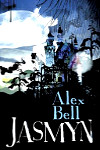
An epic tale of love, dark magic, and mystery, told in a reasonably short time.
Publisher: Gollancz (Orion Books)
Pages: 311
Type: Fiction
Age: Adult
ISBN: 978-0-575-08029-4
First Published: 2009
Date Reviewed: 24th June 2010
Rating: 4.5/5
Jasmyn’s husband is dead, that’s all there is to it – there were no warnings, no signs, it was sudden, he’s gone. And now Jasmyn’s started to experience strange things – swans falling from the sky at his funeral, photographs of her wedding day being altered so that she no longer looks happy, cruel people around her. We say that fairy tales aren’t real, but Jasmyn knows better and, actually, fairy tales may be exactly what this is about.
Jasmyn boasts a fantastic story. In it Bell has blended reality with fantasy. There are a lot of fantasy books that are strictly fantasy, and then there are some that mix our world with a pretend one, but in these latter cases the worlds are more clear-cut. What Bell has done here, not unlike in The Ninth Circle but certainly to better effect (because of course in The Ninth Circle the fantasy was theological, therefore more knowingly realistic than unicorns and fairies) is set the bare basics of the story – Jasmyn herself – in our world and then tease at the edges until they fray and become twisted around the make-believe. The fairy world in Jasmyn isn’t happy-go-lucky – this is a dark fantasy – and the dark element aids the blending further. This is in part due to the fact that the actual fairy world comes into the story only a few times because the emphasis is on keeping the characters away from it. Similarly to Lex Trent Versus The Gods, Bell has included a range of different tales from different countries. I found the book made me re-think all the things we are told are myths. Is our world really as black and white as we’re taught?
Jasmyn, the character, is an interesting one. Bell has made her albino and so alone this brings in the question of whether or not Jasmyn may be mystical herself. To think about it beggars the question of whether this would be acceptable in real life because, like anyone whose looks differ from the “norm”, albinos would not like to be singled out in such a way – but then at the same time some might find it empowering to see themselves in the way that Jasmyn has been taught by her husband. The inclusion of Liam’s love for Jasmyn and his understanding of her is a great attribute of the book. The character will likely appeal to anyone who has a disability or has trouble with social expectations for her internal discussions about how she is accepted.
In general Jasmyn is a fine narrator, but at times she can be irritating. It suits the telling of the story to have her not realising or understanding things every now and then, but although it may provide more space for extra subplots it causes the story to slow down. It suits its length but it’s slower compared to Bell’s other work. Some of the dialogue is superfluous as are some internal conflicts within Jasmyn’s mind.
Through the character of Ben, Bell has re-used the same idea she did for Stephomi in her previous book. Is he good or is he bad? She writes this element well so that although it may basically be a repetition – and a very apparent one – it never feels stale, and most importantly is, as with The Ninth Circle, a big reason to keep reading.
Bell brought up differences in the form of Jasmyn, but she doesn’t stop at looks. Included in the book is a laboratory and it is here that Bell proudly stands up and makes a statement about animal testing. It doesn’t impact the plot, and she hasn’t gone overboard. She has made her point but now the story will continue, and actually, the way it’s been done makes it one of the most memorable parts of the book.
Jasmyn takes the fairytale and turns it on it’s head. It takes the legend away from it’s comfort zone and often to some very unexpected locations. And it’s believable because of the extent of the mundane throughout.
I defy anyone not to travel with Jasmyn into this parallel world – even if it’s not quite the happy place you would expect.











